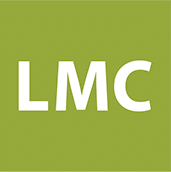At LMC, we know that vision loss can be a serious risk for people living with diabetes. That’s why we now offer comprehensive eye exams at many of our clinics and encourage patients to make eye care an essential part of their diabetes management.
Diabetes and Eye Care – Why It’s Important
When your blood sugar levels soar, the tiny blood vessels in your eyes can suffer serious damage. Over time, diabetes that is not well-controlled can lead to permanent vision loss from diabetic retinopathy. It is important to note that retinal blood vessels are some of the most sensitive in your body and frequent fluctuations in blood sugar levels, blood pressure and/or cholesterol levels can manifest in your eyes. These blood vessels are examined during a dilated eye exam. You can lower your risk of eye complications by practicing good diabetes management and by seeing an eye doctor at least once a year for a comprehensive eye exam.
Controlling diabetes – by taking medications as prescribed, staying physically active, and maintaining a healthy diet – can prevent or delay vision loss. Because diabetic retinopathy often goes unnoticed until permanent vision loss occurs, people living with diabetes should get a comprehensive eye exam at least once a year. Early detection, timely treatment, and appropriate follow-up care are key to preventing vision loss.
